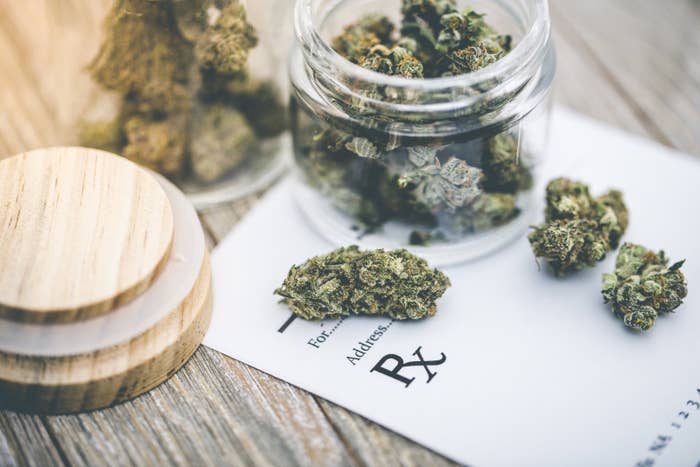
Australia's medical cannabis black-market suppliers and the parents who have been forced to source the drug illegally may find validation from a new study out of Sydney University's Lambert Initiative for Cannabinoid Therapeutics that hints at the potential THC could have in treating children with epilepsy.
Tetrahydrocannabinol (THC) is only one of the more than 100 cannabinoids which make up cannabis — but you probably know it as the thing that makes you high.
The Lambert Initiative's two-year study tested 51 black-market medical cannabis extracts provided by 65 families of children with epilepsy. Forty-one of those families reported using cannabis extracts – seven of them had now stopped – and 24 had never used the drug in treatment.
A little over 50% of the samples showed a 75–100% reduction in seizures. Over 50% of the families involved stopped or reduced their use of anti-epileptic medication.
Interestingly, most families had expected their products to be dominant in cannabidiol (CBD), the non-psychoactive cannabinoid most often associated with legal cannabis in Australia, but that wasn't the case. Instead, only 6% of samples tested had CBD levels even near the minimum amount required in clinical trials.
While CBD levels were low, traces of THC and its precursor, THCA, were the most prevalent.
Activists within the medical cannabis community have been calling for the inclusion of THC in legal products for years. Some have refused to partake in legal trials, believing the CBD-only medicine that would be given to their children wouldn't be as effective.
Then there is the issue of cost. The Lambert Initiative's study found the average least amount spent for illicit medical cannabis was $162 per month, while the highest was $270.
Australians seeking a legal alternative can face costs of more than $1,000 a week, as the drug is not listed on the PBS. Of the families surveyed by the Lambert Initiative, 66% said illicit medical cannabis was easy to obtain and 61% obtained it for free from avenues like compassionate suppliers.
The lead author of the study, Anastasia Suraev, said in a statement that the findings highlighted the "huge unmet clinical need" when it comes to managing treatment-resistant epilepsy in children.
Academic director of the Lambert Initiative and corresponding author of the study Iain McGregor explained that even though the extracts studied contained low doses of CBD, three in four were reported as "effective" by families. McGregor explained this demonstrated the importance of researching the cannabis plant "in its entirety" for epilepsy treatment.
"Despite the overwhelming presence of generally low levels of THC, concentrations did not differ between samples perceived as 'effective' and 'ineffective'," he said.
"Our research indicates there is a potential role for other cannabinoids, alone or in combination with conventional drugs, in treatment-resistant epilepsy – and this warrants further investigation so we can hopefully develop safer and more effective medicines."
You can read the study here.
